Many gathered at Telstra Health’s Customer Insights Centre in Melbourne and online for Digital Health CRC’s inaugural Digital Health Expo Series event, The Diverse Digital Health Workforce.
This Digital Health CRC initiative saw the collaboration with Telstra Health to launch the special report, Gender Diversity in Australia’s Digital Health Workforce.
The event started with a warm welcome from Dr Clare Morgan, Digital Health CRC’s Deputy CEO and Director of Research, Translation and Commercialisation. Clare acknowledged that diversity is more than just gender. Diversity in age, cultural background, ability, race, religion and sexual orientation are all just as important as gender.
The event showcased one of Digital Health CRC’s projects, the 2023 Specialist Digital Health Workforce Census, which worked in collaboration with RMIT, Telstra Health, The University of Melbourne, the Australian Department of Health and Aged Care, and working closely with another number of agencies: Australian Digital Health Agency, Australian Library and Information Association Health Libraries Australia, Australasian Institute of Digital Health, and the Health Information Management Association of Australia.
To start, Professor Kerryn Butler-Henderson and Dr Salma Arabi presented some important key statistics from the 2023 Specialist Digital Health Workforce Census Survey as well as key data from the Gender Diversity Report from Telstra Health. Notably, there has been an increase in women with over 10 years of digital health experience, which means that women are staying in the industry for longer, however, they still earn less than men. There are several implications to the findings released in the reports.
- Formal training requirement: Make digital health education mandatory for specialist roles and ensure proper remuneration for qualifications.
- Diversity and gender gaps: Address barriers to career advancement for women in technical fields through initiatives to encourage their participation.
- Intersectionality considerations: Acknowledge how factors such as First Nations status, disability, and migration status create additional workforce gaps beyond gender.
The panel followed including, Professor Kathleen Gray (University of Melbourne), Ms Amy McKimm (Alfred Health), Professor Malcolm Pradhan (University of Sydney) and Ms Caroline Lewin (Telstra Health). They discussed ensuring diversity in the workforce at all levels, including at the leadership level, through recruiting more broadly (“Don’t hire in your own image”), and the importance of nudges and mentorship to encourage diverse people towards leadership roles. There was also a theme throughout of paying close attention to culture and attitudes in workplaces as barriers or enablers of encouraging inclusion and retaining diverse people – whether through addressing “invisible layers” that create hostile environments or by actively creating safe environments for people from diverse backgrounds to speak up about issues and feel they can flourish. Flexible work arrangements, fair pay structures, and better and more equitable recognition of the value of specialist digital health work were also noted as essential to retaining a diverse workforce.


